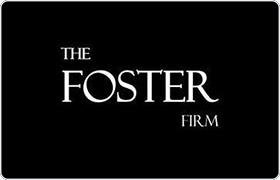Panama City DUI-DWI Lawyer, Florida
Sponsored Law Firm
-
 x
x

Click For More Info:
-
The Foster Firm
42 Business Centre Drive Suite 301 Miramar Beach, FL 32550» view mapCriminal Defense Law We Will Protect Your Rights!
Our law firm has been operating for more than 15 years and our team has numerous years of experience between them, to ensure you get the best legal advice possible.
800-940-3710
Christopher N. Patterson
Dispute Resolution, Federal, DUI-DWI, Criminal
Status: In Good Standing *Status is reviewed annually. For latest information visit here
Lisa Ann Anderson
Criminal, DUI-DWI, Felony, Traffic, Divorce & Family Law
Status: In Good Standing *Status is reviewed annually. For latest information visit here Licensed: 26 Years
FREE CONSULTATION
CONTACTCaren Bennett
Motor Vehicle, DUI-DWI, Criminal
Status: In Good Standing *Status is reviewed annually. For latest information visit here Licensed: 18 Years
Tanya Jean Higgins
Criminal, Industry Specialties, Other, DUI-DWI
Status: In Good Standing *Status is reviewed annually. For latest information visit here Licensed: 31 Years
Jonna Bowman
Criminal, Divorce, Family Law, DUI-DWI, Family Law
Status: In Good Standing *Status is reviewed annually. For latest information visit here
 James J. Foster Miramar Beach, FL
James J. Foster Miramar Beach, FL Practice AreasExpertise
Practice AreasExpertise